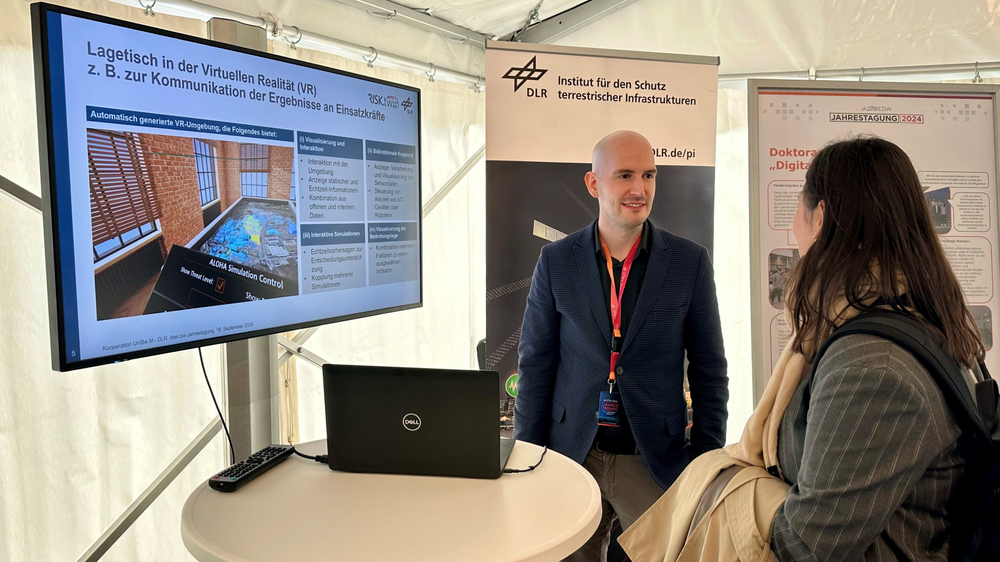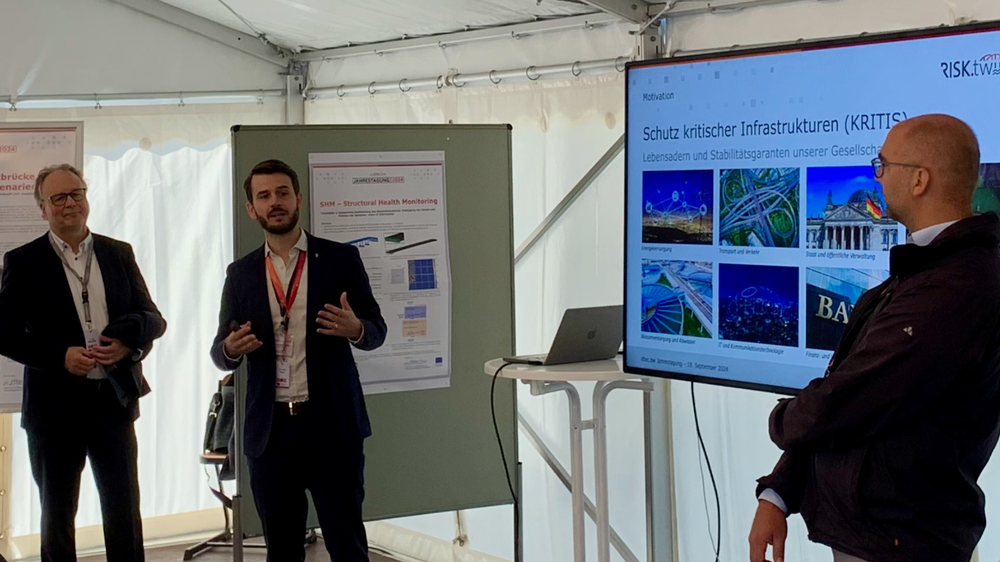How DLR and the Bundeswehr can benefit from each other

- At the first dtec.bw annual conference, the Institute for the Protection of Terrestrial Infrastructures also presented its latest research results as part of the "RISK.twin" cooperation project.
- Visitors were particularly interested in the results of the condition monitoring of structures.
Since the collapse of the Carola Bridge in Dresden in September, the discussion about the condition of infrastructures in Germany has intensified. How the condition of bridges and other structures can be reliably monitored is part of the work of the new Simulation Methods for Digital Twins department at the Institute for the Protection of Terrestrial Infrastructures. At the dtec.bw annual conference, the DLR institute presented promising new concepts for hybrid modeling of structural infrastructures. This involves combining physics-based simulations with data-driven machine learning to make more accurate predictions.
Another topic at the DLR stand was research into the spread of hazardous substances, using a chemical park as an example. Scientists from the institute showed how emergency services can use a VR situation table to predict the spread of hazardous substances for evacuation scenarios. Using data collected by sensors and integrated into the situation table, very precise statements can be made about a pollutant source and its spread. In addition, the booth demonstrated for the first time how evacuation scenarios can be displayed on the situation table by combining contaminant dispersion with evacuation data. This allows rescue teams to act more precisely in an emergency.
„We are showing that the cooperation between DLR and the Bundeswehr University Munich is an important link between civilian civil protection and similar military issues,“ explained Deputy Institute Director Prof. Dr.-Ing. Alexander Popp, who is also project manager of the dtec.bw project „RISK.twin“ at the Bundeswehr University Munich. „Our research results show how DLR and the Bundeswehr can benefit from each other.“
Under the motto „Research with added value for all dimensions“, the annual conference of dtec.bw – Center for Digitization and Technology Research of the German Armed Forces took place on the campus of the University of the German Armed Forces in Munich. The event demonstrated how the universities of the Bundeswehr work together with external partners to translate research results into practical applications. During the two-day event, numerous guests from the Bundeswehr, research and industry had the opportunity to learn more about the various research projects and new developments of dtec.bw and its project partners in panel discussions, presentations and at booths.
Kontakt
Prof. Dr.-Ing. Alexander Popp

